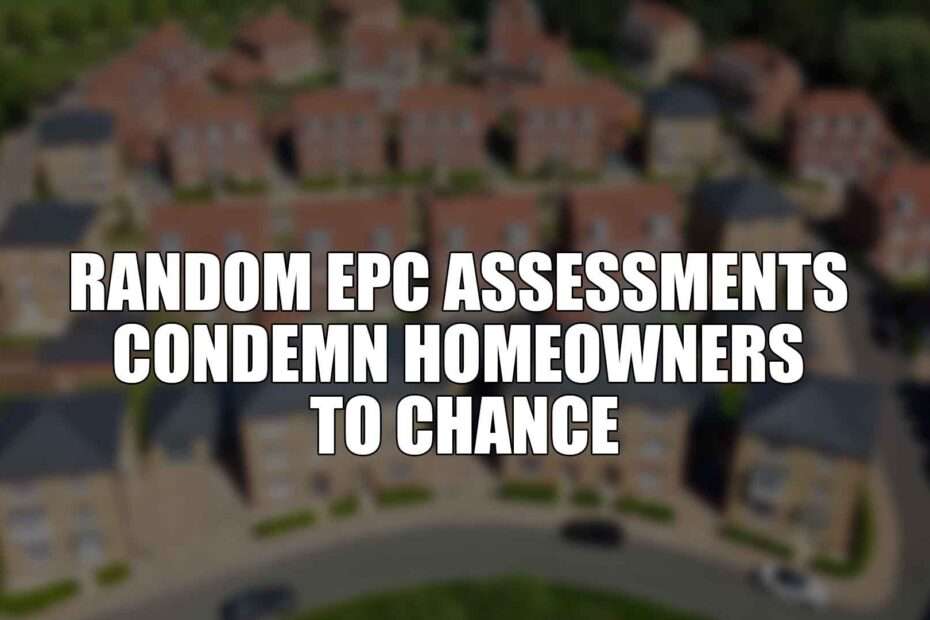Random EPC assessments condemn homeowners to chance
The Property Price Peril: Random Energy Assessments Slash Home Values
Inadequately Trained Assessors Creating Costly Uncertainties in Housing Market
Property owners across Britain are facing a troubling predicament as poorly trained energy assessors potentially devalue homes by thousands of pounds through inconsistent efficiency ratings. The issue has become increasingly pressing as Labour announces plans to overhaul energy performance certificates (EPCs) as part of their ambitious net zero initiative, which would require landlords to achieve a minimum grade C rating by 2030.
Shadow Housing Secretary Angela Rayner’s proposed reforms, whilst focusing heavily on eco-friendly improvements, have notably failed to address the concerning arbitrary nature of how assessors evaluate properties. Most alarming is the remarkably basic training required to become an assessor through Britain’s premier accreditation programmes—merely a three-day online course suffices to qualify individuals to grade properties worth hundreds of thousands of pounds.
The financial implications are stark, according to prestigious estate agents Knight Frank. Their analysis reveals that the difference between a D and C rating could affect property values by three per cent beyond standard market growth—translating to approximately £9,000 based on current average resale figures. This significant disparity highlights the critical nature of accurate assessments.
Industry professionals have raised serious concerns about the assessment process. Scott Taylor-Barr of Barnsdale Financial Management presents a particularly troubling scenario: “Identical neighbouring houses could receive vastly different ratings simply due to different assessors conducting the evaluations. One property might be rated D whilst its identical neighbour achieves a C rating, subsequently gaining access to more favourable mortgage terms—purely because different individuals performed the assessments.”
The assessment system’s fundamental flaw lies in its ‘non-invasive’ nature, as explained by Chris Norris from the National Residential Landlords Association. Assessors must often rely on assumptions about crucial elements like cavity wall insulation and loft insulation, as they cannot physically examine these features. This guesswork can dramatically impact a property’s final EPC score.
The path to becoming an energy assessor has apparently been significantly simplified over time. Maxine Fothergill, who previously worked as an EPC assessor, provides a telling comparison between past and present training requirements. She recalls completing nine months of rigorous training, including extensive classroom attendance and studying numerous textbooks. In stark contrast, current candidates can reportedly complete their qualification within a month through Britain’s largest accreditation scheme, Elmhurst Energy, requiring only a three-day online course costing £1,139 and the completion of five test EPCs.
The deterioration in assessment standards has been particularly notable. Fothergill points out that contemporary assessors have become increasingly lax in their approach, often avoiding thorough inspections such as loft examinations, citing health and safety concerns. This marks a significant departure from previous expectations where such comprehensive checks were standard practice.
The unreliability of current EPC assessments was starkly illustrated by a Which? investigation, where twelve households underwent EPC evaluations. The results were deeply concerning—only one participant expressed satisfaction with their assessment outcome. Tom Garrigan from the Building Services Research and Information Association reinforced these findings, noting that multiple assessments of the same property by different assessors would likely yield varying results.
Period properties face particular challenges under the current system. Victorian homes, which constitute a significant portion of Britain’s rental market, are essentially predetermined to receive poor ratings due to their inherent structural characteristics. Portfolio landlord Kundan Bhaduri of the Kushman Group describes the EPC system as “a masterclass in randomness,” highlighting how even substantial investments in improvements often fail to significantly improve ratings.
The government has acknowledged these issues, with a spokesperson stating: “Homeowners should rightfully expect consistent and accurate EPC assessments as standard. We recognise this hasn’t always been achieved, which is why we’re currently consulting on ways to enhance training and audit requirements for energy assessors to improve standards and rebuild confidence in the system.”
Labour’s proposed reforms would grant accreditation schemes like Elmhurst greater oversight of training programmes, potentially giving them complete responsibility for assessor education. However, the non-invasive nature of assessments would remain unchanged, meaning assessors would continue to rely heavily on assumptions about insulation and other key factors.
The government’s focus appears to be shifting towards modernising the certificates themselves, introducing new metrics that favour properties capable of integrating smart technology and green heating systems such as heat pumps. However, this approach may not address the fundamental issues of assessment consistency and accuracy that currently plague the system.

